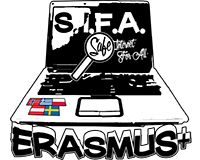Reasons for the creation of malware
- Written by Giorgos Errikos Hlapanis
- Published in Internet System Security: Articles
Introduction
Nowadays that we are experiencing a phenomenal burst of technological growth, the use of internet via personal computers, smartphones, tablets and any similar devices is at its peak. Most people almost never go offline. In addition to that, multimedia such as movies, music, photos, are being constantly downloaded by users of the internet. Their most often fear is that they will be infected by a virus. This is very reasonable because the easiest way to get infected by a virus is by downloading stuff from the internet. To avoid virus infection, they buy all kinds of expensive antiviruses, which are supposed to protect them from thousands of different types of malware. So you may be asking: Why do people create malware? What do they gain from that?
Definitions and Terms
Malware is any software used to disrupt computer operation, gather sensitive information, or gain access to private computer systems. Spam is the use of electronic messaging systems to send unsolicited messages, especially advertising. Computer network is a telecommunications network that allows computers to exchange data. Zombie master is called among programmers a virus creator. Botnet is a collection of Internet-connected programs communicating with other similar programs in order to perform tasks controlled by the zombie master. Keylogging is the practice of using a software program or hardware device to record all keystrokes on a computer keyboard. Master Boot Record is a special type of boot sector at the very beginning of partitioned computer mass storage devices like fixed disks or removable drives intended for use with IBM PC-compatible systems and beyond.
Reasons for the creation of malware
To begin with, the reason the first programmer decided to create a virus and malware in general, is to prove it can be done. In other words, the programmer (and every human in general) has a need to prove their skill. They view the virus creation as a challenge and they try to pass a message through it. According to Bryce Whitty (2007) contrary to common belief, very few viruses nowadays are intended to disable a computer because this would stop viruses’ ability to spread to other computers. Older viruses would overwrite the Master Boot Record, preventing the computer from starting at all. On the other hand it is very common for modern-day malware to crash computer networks which is much more useful. These were the reasons that inspired the fathers of malware to create viruses in the past. However viruses continue to exist and they do multiply and develop in an extremely fast pace. The reason that happens is the need to make money. It’s not illogical -especially now that shopping online is experiencing massive growth- to try to make money by hacking online shopping accounts and credit card numbers. However, there are also other ways to try to make others pay you. One good example of that is all of this “free antivirus” software which is everything apart from “free”. These programs usually “magically” appear on your screen without you downloading them, reporting that they have found a mysterious virus on your computer that never existed. Most of the times they don’t even refer to themselves as “antivirus” rather as “virus removal tools”. After the message, the only way for you to “save” your computer is to buy the full product which, by the way, is very pricey and does not actually protect you. Due to experiences such as the one described above, it is commonly believed that big antivirus names actually create their own viruses that destroy your computer so they make you buy their product. Of course this is just an example -not the rule-and it’s not true for most of the respectful and trustworthy software even if they are free. According to the author of “http://www.computerhope.com” a very trustworthy computer site, “Antivirus companies know the risks involved when dealing with computer viruses and the potential dangers of viruses getting out in the wild. The whole concept of antivirus companies creating viruses is a myth, urban legend, and a conspiracy theory” Moreover, there are many viruses, or better classified by experts as Trojans, which are created with the view of taking control of a computer or it’s IP address in order to use it for specific tasks. These types of viruses are usually downloaded unknowingly by the user because they are hidden in the code of another program. It is very common from the creators of Trojans to try to lure the user to download them by providing free pirated products that are originally requiring the user to pay. Once the computer has been infected the virus creator, or else zombie master, gets full control of the computer or its connection to the internet depending on the type of the Trojan. The “Zombie master” will gather thousands of infected machines called a botnet and use them to mount attacks to overload a server until it crashes. This could be use to crash a rival server, or it could be part of an extortion plan to gain money. In addition, it could be used to perform tasks anonymously such as sending spam or gathering personal information about each user-member of the botnet using the method of keylogging. This information can be used for stealing passwords, chat messages, personal photos and videos, but also for identity theft purposes.
As a conclusion, there are many reasons that push programmers to create malware. Some do it to gain access to personal information, others to take control of someone’s computer and finally others do it plainly for money. So it is our responsibility to be aware that the internet is not a safe place.
References
Bryce Whitty, (2007), Why do People Create Computer Viruses? as retrieved from the internet 10/12/2014 from: http://www.technibble.com/why-do-people-create-computer-viruses/ http://www.computerhope.com/issues/ch001404.htm http://en.wikipedia.org/wiki/Trojan_horse_(computing) http://en.wikipedia.org/wiki/Malware http://dictionary.reference.com/browse/
